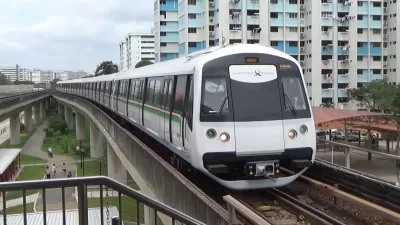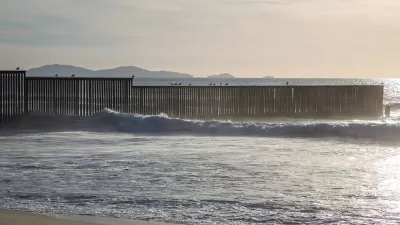Proposed restrictions on federal spending for transit railcars center on concerns about market competition and national security.

A recent Eno Center for Transportation report examines a proposed policy to restrict the use of federal funds for the purchase of transit vehicles from companies owned or subsidized by the People's Republic of China. The focus of this ban is CRRC Corporation Limited, the largest global supplier of rail transit equipment.
Proponents say the ban is necessary because CRRC is a state-owned enterprise receiving subsidies that can, as a result, underbid its competitors. They also say that CRRC will dominate the transit railcar market and move to take over the domestic freight railcar market down the road.
Opponents argue that the ban would burden American taxpayers and state and local governments, given the higher cost of transit railcars from other manufacturers. In addition, they say that domestic assembly plants for these railcars provide local jobs and encourage regional manufacturing, balancing out negative outcomes.
The report also discusses the national security concerns behind this transit railcar proposal:
Cyber threats—like spyware and malware—are a significant concern for the mass transit industry. The sector is undergoing rapid technological change as rail networks become more connected and automated, outfitted with amenities like mobile ticketing and Wi-Fi, and integrated in social networks.
The report notes that the Department of Homeland Security, as part of the National Defense Authorization Act, will be conducting a study about transit railcars manufactured by Chinese companies and national security threats.
FULL STORY: The Implications of the Federal Ban on Chinese Railcars

Planetizen Federal Action Tracker
A weekly monitor of how Trump’s orders and actions are impacting planners and planning in America.

Restaurant Patios Were a Pandemic Win — Why Were They so Hard to Keep?
Social distancing requirements and changes in travel patterns prompted cities to pilot new uses for street and sidewalk space. Then it got complicated.

Map: Where Senate Republicans Want to Sell Your Public Lands
For public land advocates, the Senate Republicans’ proposal to sell millions of acres of public land in the West is “the biggest fight of their careers.”

Maui's Vacation Rental Debate Turns Ugly
Verbal attacks, misinformation campaigns and fistfights plague a high-stakes debate to convert thousands of vacation rentals into long-term housing.

San Francisco Suspends Traffic Calming Amidst Record Deaths
Citing “a challenging fiscal landscape,” the city will cease the program on the heels of 42 traffic deaths, including 24 pedestrians.

California Homeless Arrests, Citations Spike After Ruling
An investigation reveals that anti-homeless actions increased up to 500% after Grants Pass v. Johnson — even in cities claiming no policy change.
Urban Design for Planners 1: Software Tools
This six-course series explores essential urban design concepts using open source software and equips planners with the tools they need to participate fully in the urban design process.
Planning for Universal Design
Learn the tools for implementing Universal Design in planning regulations.
Heyer Gruel & Associates PA
JM Goldson LLC
Custer County Colorado
City of Camden Redevelopment Agency
City of Astoria
Transportation Research & Education Center (TREC) at Portland State University
Camden Redevelopment Agency
City of Claremont
Municipality of Princeton (NJ)




























